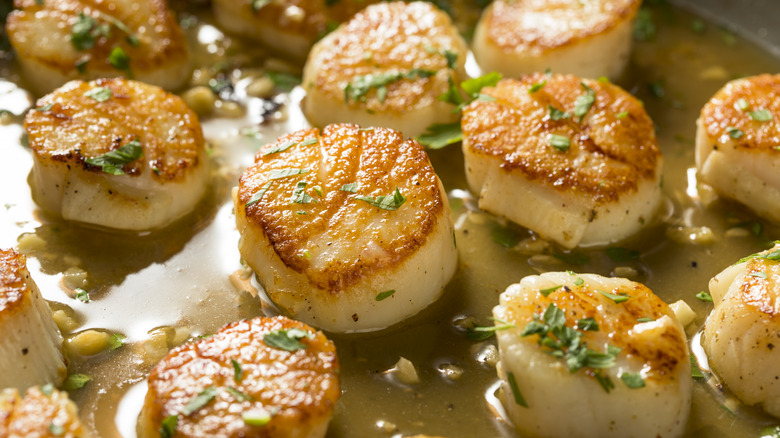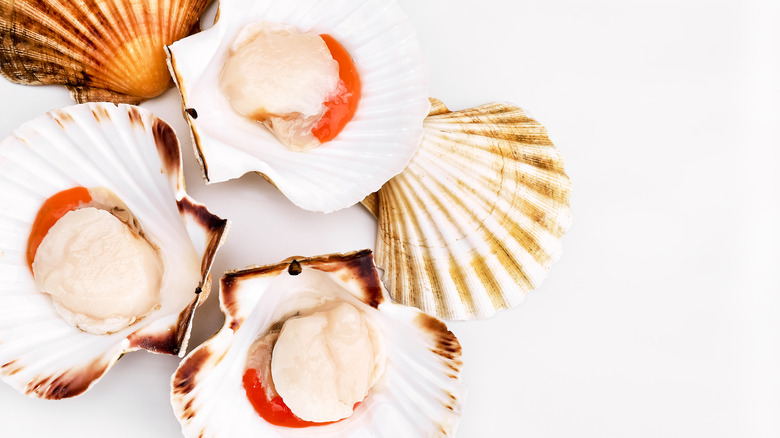The Absolute Best Type Of Scallops To Broil
Scallops are a delicious type of shellfish with a long history: They've been around for at least 300 million years, with over 300 types still existing today, per Mussel Inn. The bivalve mollusk comes in reddish-pink or brown shells with elegantly fluted edges (via NOAA Fisheries). These shells are held together by the adductor muscle, which is actually the part that's usually consumed. The firm, lean flesh is full of protein, omega-3 fatty acids, vitamin B12, and minerals like copper, zinc, and selenium, which makes scallops a healthy choice for dinner. And specifically, the harvest of U.S. wild-caught Atlantic sea scallops is closely regulated to follow sustainable and responsible standards, so eating these succulent morsels won't have negative implications for the environment.
There are two main varieties of scallops that are consumed: sea scallops and bay scallops. But there are so many different ways to enjoy them: as a ceviche, wrapped in bacon, simply seared, or even with pasta – just to name some possibilities. However, if you're going to broil scallops, there is one particular kind you should use over the others.
Fresh scallops for broiling
Broiling is an efficient way to achieve a satisfyingly crispy exterior and juicy interior — quickly transforming most ingredients into mouth-watering foods. Scallops are no exception; though, if you want to broil these mollusks for your next meal, be sure to use large and dry sea scallops that are bought fresh, not frozen, per MasterClass. This kind of scallop is usually sweeter and contains more flavor.
When applied to scallops, the term "dry" doesn't just refer to their level of moisture. It's actually the way the seafood industry describes scallops that haven't been treated with sodium solutions or other compounds (via Great Alaskan Seafood). These scallops are the most natural, and they also taste the best.
The glossy-looking wet scallops you come across at the grocery store may look juicy and more appealing, but that's because they've been treated with artificial preservatives that cause the flesh to hold onto more moisture, per Wild Alaskan Company. Thus, they are harder to sear and may even have an unpleasant rubber-like texture. So when choosing scallops to broil, just remember — the bigger and dryer they are, the better they will be. But if you only have access to frozen scallops, let them defrost in a colander over a bowl in the refrigerator overnight to remove as much excess water as possible.

